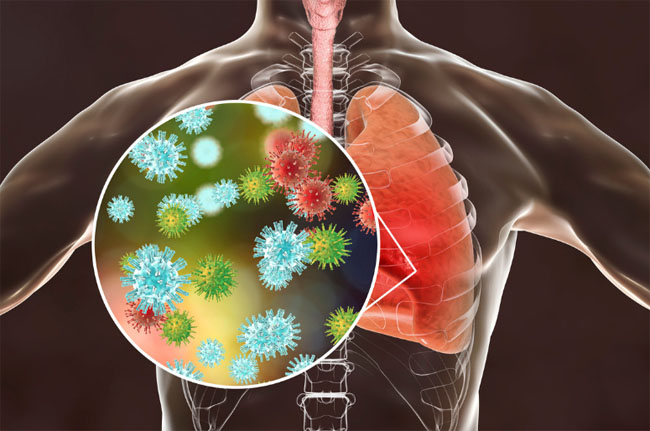REGION – RSV is a common respiratory virus that most young children will have at least once, and it usually causes symptoms like that of a cold. However, while most children or adults will recover from RSV in a week or two, the virus can be serious for infants and older adults.
Pediatrician Shreya Wachob, D.O., of My Michigan Medical Group, answers common questions about the virus and reminders on how to slow the spread:
Q. What is RSV?
A. RSV is a contagious, seasonal respiratory infection. It is common in childhood but can affect adults as well. RSV is the most common cause of bronchiolitis, inflammation of the small airways in the lungs.
Q. How is RSV spread?
A. RSV, like many other viral illnesses, is spread when an infected person coughs or sneezing, when you get virus droplets in your eyes, nose, or mouth, if you touch a surface that has the virus on it and then touch your face or if you have direct contact with the virus. It’s common for RSV to spread in places like schools or daycare centers.
Q. What are the symptoms of RSV?
A. The most common RSV symptoms include a runny nose, cough, sneezing, fever, wheezing and a decreased appetite. In infants, symptoms may include irritability, decreased activity and breathing difficulties.
Q. How is RSV diagnosed?
A. If you suspect your child has RSV, contact their pediatrician. Warning signs may be labored breathing, wheezing or fever. Pediatricians may order a chest X-ray or other tests including nasal fluids.
Q. Is there any treatment for RSV?
A. For many, RSV infections will go away on their own within a week or two. There is currently no specific treatment for RSV, but you can provide symptom relief by using saline drops and suctioning out the nose, treating fevers with Tylenol or Motrin and making sure your child is drinking enough fluids to prevent dehydration.
Q. Why is RSV more dangerous for infants?
A. Infants, particularly premature or very young infants (under 6 months), children younger than 2 with chronic lung disease or congenital heart disease, children with weakened immune systems and children who have neuromuscular disorders are at the highest risk for severe illness from RSV. RSV for those at high risk is more likely to cause bronchiolitis, inflammation or the small airways in the lung, or pneumonia. If you notice your infant wheezing, having difficulty breathing, including flaring their nostrils or straining their chest or stomach while breathing, or turning blue around their lips or fingertips, seek medical attention immediately.
Q. How can RSV be prevented?
A. Prevent the spread of RSV as you would prevent any other illness as we come into cold and flu season! Wash your hands with soap and water often, clean frequently touched surfaces such as doorknobs and cell phones, and avoid things like sharing utensils, cups, etc., with others. For young infants especially, limit visitors and ask them not to touch or kiss your baby’s face. RSV can be contagious before people even begin showing symptoms.
Q. Does RSV affect adults?
A. Adults can get RSV, but it usually appears as a mild cold in most. However, the elderly can have severe infection from RSV as well. It is possible for adults to pass RSV onto their children and babies.
Those interested in more information about RSV are encouraged to visit www.cdc.gov/rsv.


